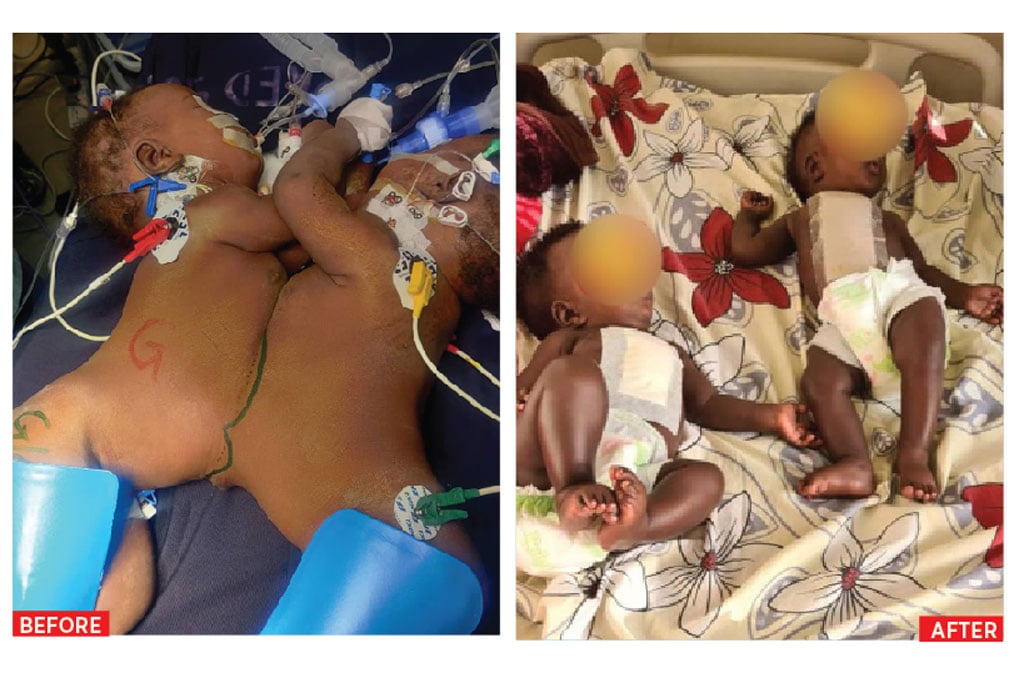Prime
Separated conjoined twins, parents stuck at Mulago hospital

Ms Hellen Kugonza and Mr Moses Talemwa, the parents, carry one of the twins after the surgery at Mulago hospital. The other is in bed on the right. PHOTO | STEPHEN WANDERA
What you need to know:
- Ms Hellen Kugonza and her husband Moses Talemwa, both peasant farmers, told journalists yesterday at the hospital that they have stayed there for six months now.
Parents of the conjoined twins who were successfully separated in February at Mulago National Referral Hospital are stuck with the babies at the facility because doctors categorised their Hoima-based home as unsafe.
Ms Hellen Kugonza and her husband Moses Talemwa, both peasant farmers, told journalists yesterday at the hospital that they have stayed there for six months now.
“On December 15, 2021, I gave birth to babies who were conjoined and Hoima Regional Referral Hospital [where I gave birth through a caesarean section] referred us here. We came to Mulago hospital on December 16, 2021, and the doctors welcomed us and they were treating us very well,” she narrated.
“The separation was done on February 15, 2022, and it was well done and we thank every person in the team of medical workers who provided care and kept us. They gave us everything, including the needs we couldn’t get,” she added.
Why at the hospital
Dr John Sekabira, the acting deputy director of the hospital, explained that they kept the babies at the hospital to ensure they are taken to a safe home after discharge.
He said the hospital, through the financial support from Habitat for Humanity, a non-governmental organisation, will construct for the couple a decent home before they are discharged.
He said they spend somewhere between Shs100m and Shs200m to operate on conjoined twins at the facility, an investment he said should not go to waste.
“We had not yet started looking into the details of where the children go after they are discharged. We felt bad that one of the conjoined twins from Kole District, whom we separated in the past, died of malaria,” Dr Sekabira said.
“That is what enlightened us to see where the patients go after discharge. So we now send our social workers to assess the situation at the home for us to make an informed decision. We assess for economic and social infrastructure to support the children who are discharged,” he added.
Mr Robert Otim, the country director for Habitat for Humanity, an organisation that constructs homes for vulnerable people, said they hope to make the Shs26m home ready for the babies and their parents in two months. The four-roomed permanent house will have a solar system, 3,000-litre tank for rainwater harvesting and ventilated improved pit-latrine, according to the organisation.
Ms Kugonza, in response, said: “We thank the team from Habitat for Humanity who have committed to building a house for us. We thank the nurses on the ward who have continued to help us. ”
Dr Nasser Kakembo, the lead doctor in the specialised surgery, said the babies were sharing a liver and membrane, which covers the heart.



